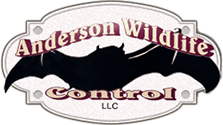While most of us enjoy having a warm, cozy home in the wintertime, we’re not the only ones. Wildlife and pests may also be enjoying the cozy atmosphere of our homes as a refuge from cold and stormy winter weather.
Who’s Been Sleeping in MY Home?
While we hope you have no bears sleeping in your beds, chances are good you may have chipmunks sleeping under your deck, squirrels sleeping in your attic and mice sleeping in your walls. Birds, small mammals and insects all have the same desire as we do in the winter: to get out of the cold. Unfortunately, the results are often less heartwarming than in a fairy tale: while they’re inside our homes, animals and insects may be causing expensive damage by chewing, nesting and leaving smelly droppings that can carry disease.
So how do you keep unwanted (and non-paying) guests out of your home during the winter? There are some things you can do to reduce the chances that critters use your home as a free Airbnb. These practical tips include the following:
Examine your home for entry points. Wildlife will enter your home through surprisingly small openings. These might include tiny holes in the roof, gaps in the walls, openings in the rafters, areas where your roof has warped, or even the small openings around pipes, cables, windows and exhaust fans. Preventing unwanted wildlife from crashing at your place begins with a full examination of your home for any openings large enough for critters to wiggle through.
Seal any entry points. Once you have identified the entry points, it’s important they be sealed properly so wildlife can’t get in, but the opening can still perform its function safely, in the case of vents and fans and openings for pipes and cables.
Winterizing your home. This is where the “two-birds-one-stone” benefits come in: in sealing up any areas where wildlife can encroach on your home, you’re also helping to winterize your home against heat loss and expensive energy waste.
Learn proper storage practices. In many cases, animals aren’t just after shelter, they’re after food. For this reason, it’s important not to leave anything animals might view as a free meal lying around uncontained. This includes dog food, cat food, bird food and anything else that might make an ideal snack for a family of squirrels, a peckish mouse or a possum looking for a free meal and a place to sleep for the winter.
But What Do I Do with the Wildlife?
You can be both an animal lover and a person who doesn’t want to share your home with wild animals. Just because you care for animals doesn’t mean you want them gnawing on your insulation. Luckily, there are companies that specialize in human animal removal. These companies will remove and exclude unwanted animals from homes and businesses using non-lethal practices.
Call a Professional
As a professional animal removal company, Connecticut-based Anderson Wildlife uses legal and human methods to trap and remove raccoons and other wildlife, eliminating any use of poisons, pesticides or chemicals. Animals are relocated humanely, and Anderson Wildlife will repair any damage to your Connecticut home or business so the animals can’t reenter your home and take up residence. Call 203-758-0555 or visit us online for a free quote.







